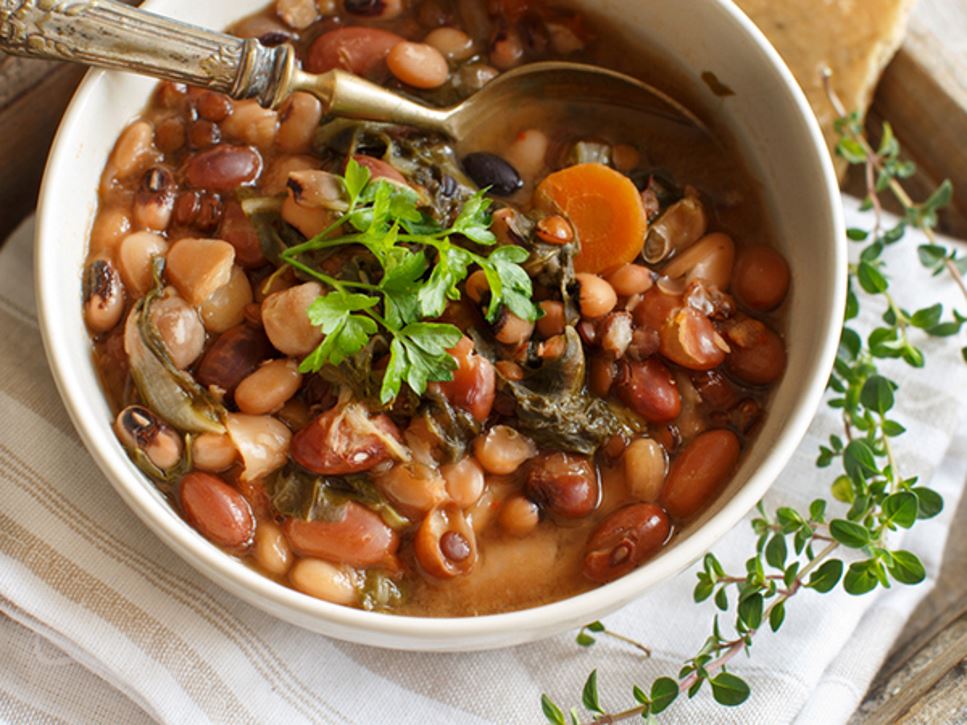Whether you’re new to following a vegetarian diet or have been following one for years, there are plenty of foods you may encounter that may be unfamiliar to you. Below is a glossary of terms that can be helpful to know.
Casein: A milk protein that’s sometimes found in non-dairy products such as soymilk, soy cheese and non-dairy creamer. If you follow a vegan eating pattern this is an ingredient to watch out for.
Legumes: The vegetable family that includes beans, lentils, peas and peanuts, all of which provide plant-based protein.
Nutritional Yeast: A type of deactivated yeast that’s used as a condiment or added to recipes to provide a cheese-like flavor. Nutritional yeast does not leaven food.
Rennet: Used to make a variety of cheeses, rennet is an enzyme that is traditionally taken from the stomach of calves, however, plant-based versions of the enzyme also are in use. Check the label before purchasing.
Seitan: A vegetarian replacement for meat, made from vital wheat gluten, the main protein from wheat.
Soybean: Soybeans are used to make a number of vegetarian and vegan substitutions for meat, dairy and eggs.
Non-dairy cheese: A cheese-like product made from soybeans, other legumes or nuts. Non-dairy cheeses come in most of the same varieties as dairy cheeses, such as parmesan, mozzarella and cheddar. Keep in mind, lactose-free cheese is not the same non-dairy cheese.
Plant-based milk: Typically used as a substitute for dairy milk, plant-based milks may be made from soybeans, nuts, seeds, grains or coconut. Plant-based milks are often fortified with nutrients such as calcium, vitamin D and vitamin B12, but the protein content of these milks vary. Soy milk is the only nondairy milk considered nutritionally similar to dairy milk.
Tempeh: A replacement for meat, made from fermented soybeans and pressed into a dense patty. Must be cooked before eating.
Textured Vegetable Protein: Derived from soy flour, TVP commonly is used in vegetarian restaurants as a substitute for ground beef.
Tofu: Tofu is made from curdled soy milk and pressed into blocks. It may be eating plain or seasoned, cold or cooked. Due to its protein content, it’s often used as a replacement for meat and eggs.
Tofu is available in a variety of textures which are suited to different uses:
- Extra-firm tofu: roasting, grilling or marinating
- Firm tofu: stir-frying, boiling or to use as filling
- Soft tofu: pureeing
- Silken tofu: pureeing, simmering, egg substitution, used in vegan desserts and smoothies
Information provided by Vegetarian Nutrition, a dietetic practice group of the Academy of Nutrition and Dietetics.
Find a Nutrition Expert
Looking for credible nutrition information and recommendations? The Academy of Nutrition and Dietetics' network of credentialed food and nutrition practitioners are ready to help!

